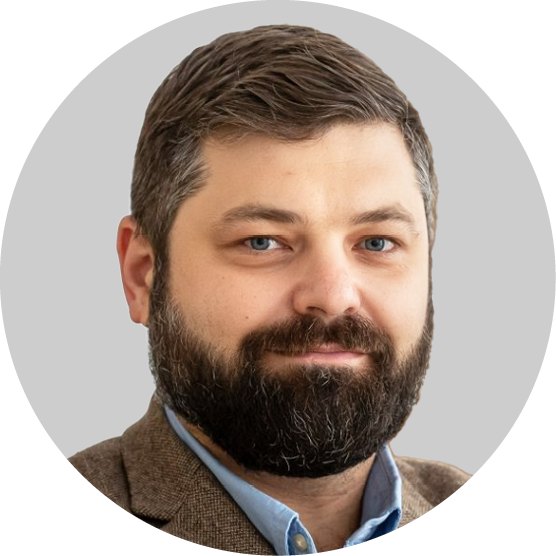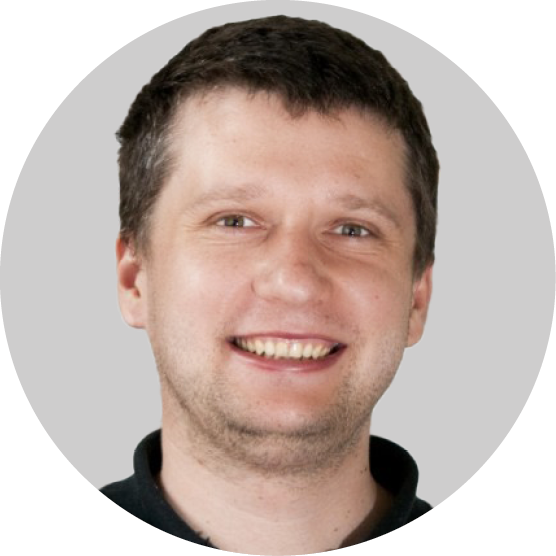
Prof. Tomasz Kajdanowicz and Prof. Radosław Michalski from our Faculty are among the eighteen researchers in the first Academia Professorum Iuniorum. It is intended to support recently habilitated researchers who undertake innovative topics and building new research teams.
Academia Professorum Iuniorum was established on 27 October by the rector, Prof. Arkadiusz Wójs and is one of the key elements of our university's activities in promoting scientific excellence.
– Its main task is to select and support a group of outstanding, young, independent scientists representing various disciplines and building research teams or undertaking new research topics – says Prof. Arkadiusz Wójs. – The Academy is also intended to serve as a platform for unrestricted, creative intellectual exchange between its members, as well as to facilitate researchers in expressing their opinions inside and outside the university. It is intended to be a continuation of the already proven concept of Academia Iuvenum – he adds.
The term of office of the eighteen newly appointed researchers will start on 1 January, 2024 and will last two years. Ultimately, the academy cannot have more than 36 members, and elections for a maximum of 18 new researchers will take place annually. All members will receive a two-year grant of PLN 120,000 funded by the University. It may be used for expenses related to forming or expanding a research team or to undertaking a new research topic.
– By establishing the Academy, we also fulfil the goals set out in our University's development strategy. It declares, among others: focusing on pioneering and groundbreaking research in important areas of science and technology and promoting professional development. It is difficult to find a better combination of these two great challenges – emphasizes Prof. Arkadiusz Wójs.
At the beginning of 2024, after consultations with the elected Presidium of the Academy, the rector's representative for API will also be appointed, in order to provide substantive supervision over the body.
The first members of the Academy Professorum Iuniorum include:
Prof. Tomasz Kajdanowicz
Faculty of Information and Communication Technology, Department of Artificial Intelligence, discipline of information and communication technology
Specialist in machine learning, representation learning and deep learning, passionate about data science. His scientific interests are also related to social media analysis. Head of the Department of Artificial Intelligence, winner of the CHIST-ERA network programs (development of a tool facilitating the search of court decisions), author of over 100 scientific papers in the field of data analysis methods, machine learning and network analysis, reviewer in over 20 international journals and leading conferences on machine learning, holder of the Stanford University scholarship and visiting professor at the University of Sydney in Australia.
Prof. Radosław Michalski
Faculty of Information and Communication Technology, Department of Artificial Intelligence, discipline of information and communication technology
His scientific interests are related to diffusion processes in social networks (e.g. social influence, temporal networks, machine learning, as well as blockchain technology solutions and analysis. Winner of the Opus grant from the National Science Centre for research related to modelling social interactions with data streams. Founder and head of BERG (Blockchain Exploration Research Group) dealing with the analysis of blockchain understood as a complex network, co-founder and co-leader of the Network Science Lab at Wrocław University of Science and Technology.
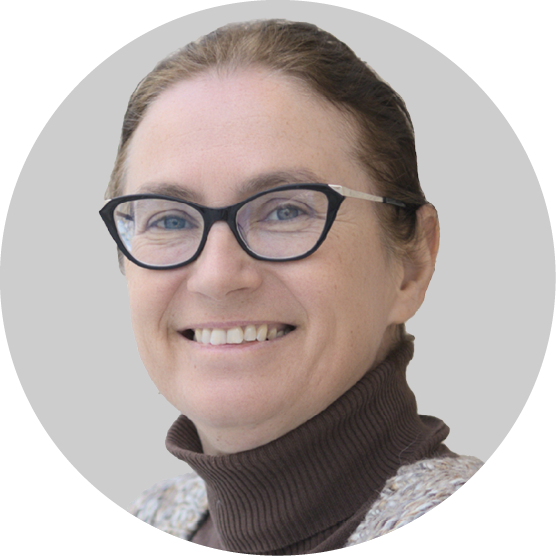 Prof. Magdalena Baborska-Narożny
Prof. Magdalena Baborska-Narożny
Faculty of Architecture, Department of Architecture and Visual Arts, discipline: architecture and urban planning
Her work focuses on residential architecture and challenges related to climate-related problems and energy poverty. She focuses on understanding the well-being of residents, especially in terms of ensuring their thermal comfort, as well as air quality and energy consumption. She is interested in the quality of the residential environment as a result of the user's interaction with a given context. Winner of the Fulbright STEM Impact Award.
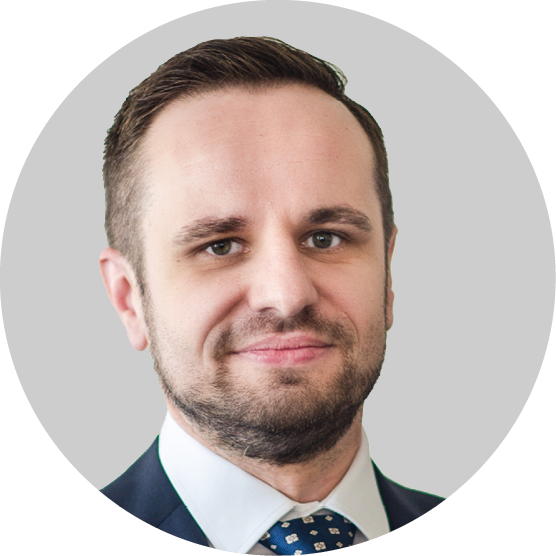 Prof. Adrian Różański
Prof. Adrian Różański
Faculty of Civil Engineering, Department of Geotechnics, Hydrotechnics, Underground and Water Engineering, discipline: civil engineering, geodesy and transport
His scientific interests are related to the mechanics of periodic and random micro-nonheterogeneous media, computational micromechanics and numerical methods, as well as large-scale modelling of physical processes, soil and rock mechanics and geotechnics. He is the vice-dean for staff development and international cooperation at the Faculty of Civil Engineering, and also the deputy chairman of the Scientific Discipline Council of Civil Engineering, Geodesy and Transport.
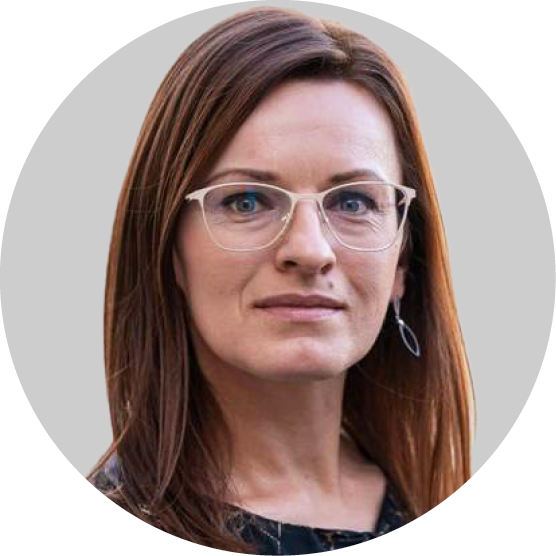 Prof. Izabela Michalak
Prof. Izabela Michalak
Faculty of Chemistry, Department of Advanced Materials Technologies, discipline: chemical engineering
She researches among others: waste biomass management, algae biomass, bioabsorption, extraction of active compounds from biomass, biomonitoring and plant growth biostimulants. She is a winner of the Opus National Science Centre and Canaletto programs for Polish-Italian research, organized by the National Agency for Academic Exchange. She is also listed in the international ranking of TOP 2% most influential people in science, prepared by analysts from Stanford University, Elsevier publishing house and SciTech Strategies for 2022.
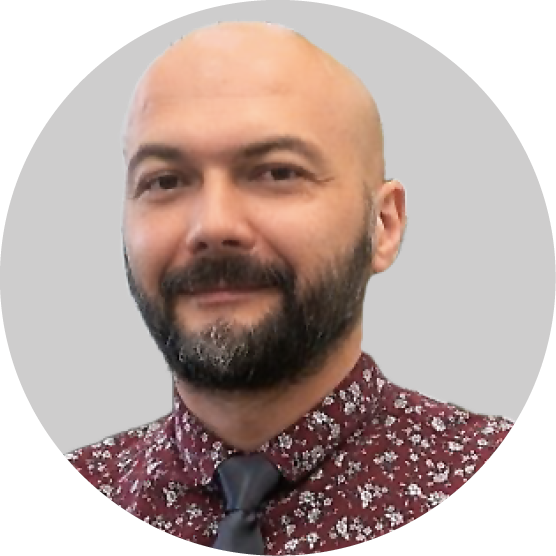 Prof. Bartłomiej Szyja
Prof. Bartłomiej Szyja
Faculty of Chemistry, Institute of Advanced Materials, discipline: chemical sciences
His scientific interests are related to CO2 utilization, photocatalysis, theoretical aspects of catalysis, clean energy technologies and zeolite synthesis. Winner of Opus grants (research on a graphene-based artificial leaf), M.ERANET-2 (multi-scale modelling of photoelectrochemical interfaces) and National Centre for Research and Development (contractor in the H2 HUB Nowa Sarzyna project: Green Hydrogen Storage). Laureate in the 30 Creative Residents of Wrocław competition.
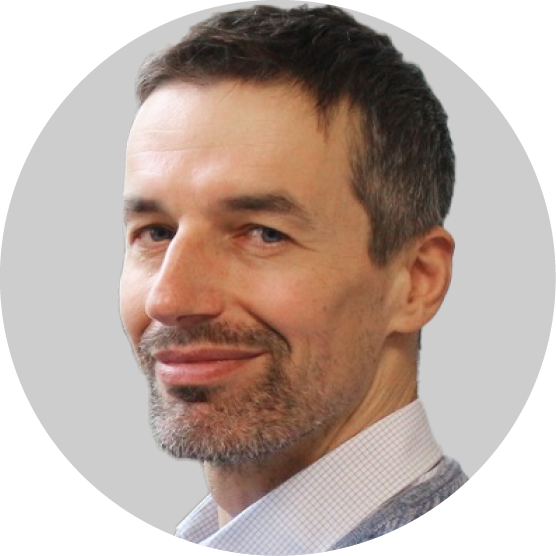 Prof. Jan Blachowski
Prof. Jan Blachowski
Faculty of Geoengineering, Mining and Geology, Department of Geodesy and Geoinformatics, discipline: environmental engineering, mining and energy
Specialist in the modelling and analysis of natural and anthropogenic systems with both geographic information systems and systems analyzing deformations of mining and post-mining areas. His scientific interests also include mining surveying, spatial statistics and spatial information infrastructure.
Head of the Department of Geodesy and Geoinformatics. Winner of Opus grants from the National Science Centre (research related to the genesis and course of anthropogenic and natural land deformations in the post-mining areas of the former "Babina" brown coal mine), NAWA and National Centre for Research and Development (monitoring the impact of ecological and socially acceptable energy transformation in rural regions).
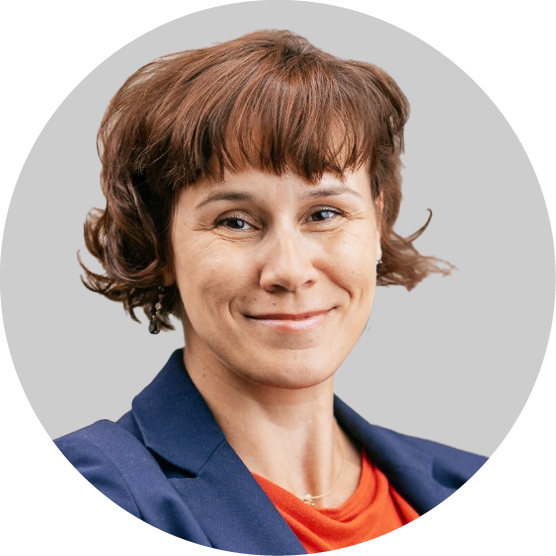 Prof. Anna Kowalska-Pyzalska
Prof. Anna Kowalska-Pyzalska
Faculty of Management, Department of Operational Research and Business Intelligence, discipline: management and quality sciencesdyscyplina: nauki o zarządzaniu i jakości
Her interests and scientific publications concern modelling the diffusion of innovations, the adoption of innovative goods and services in the energy market (e.g. dynamic tariffs, green energy), as well as social acceptance of these goods and services. She is an author of articles in prestigious journals, including: Energies, Energy Policy, Energy Reports, Information Processing & Management, Renewable and Sustainable Energy Reviews, Physica A, Sustainability, Telematics and Informatics; she is also a reviewer of journals on the JCR list.
She participated in the implementation of projects financed by the EU and the National Science Centre, and is currently head of an NCN Opus project (Opportunities and directions of development of modern energy communities in Poland based on empirical and simulation research).
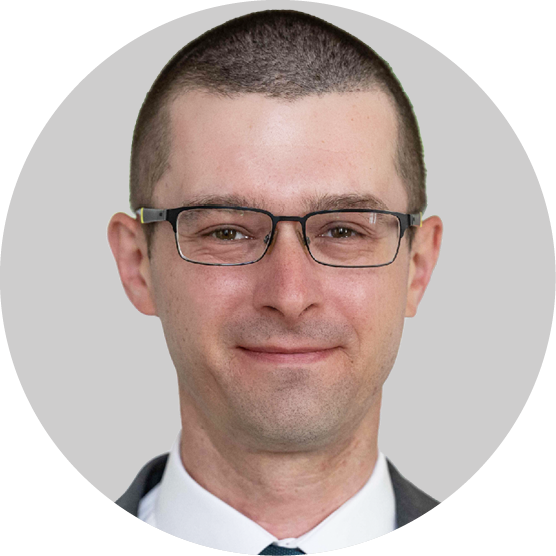 Prof. Piotr Kolasiński
Prof. Piotr Kolasiński
Faculty of Mechanical and Power Engineering, Department of Thermodynamics and Renewable Energy Sources, discipline: environmental engineering, mining and energy
is scientific work concerns the use of advanced methods of thermodynamic analysis in the modelling of and research on energy conversion systems from alternative sources (in particular the so-called Organic Rankine Cycle systems), construction and operation of positive displacement machines, rationalization of energy acquisition, use and conversion processes and hydrogen technologies.
He has published 125 international scientific works and holds two patents. He participates, as both head and contractor, in scientific projects financed by, among others, National Centre for Research and Development and the European Union. Reviewer in several leading scientific journals, member of scientific committees in Polish and foreign conferences.
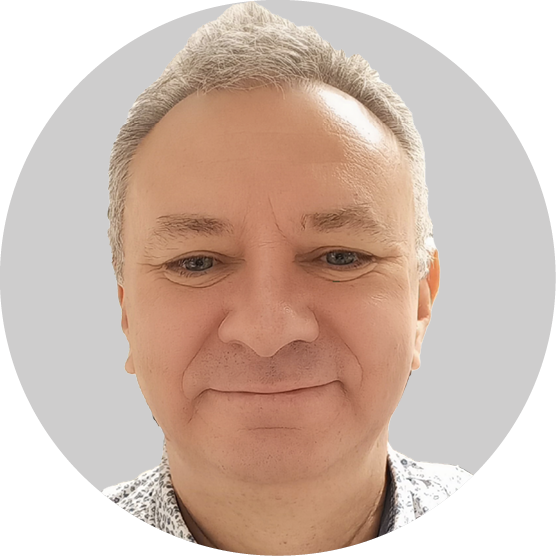 Prof. Mariusz Hasiak
Prof. Mariusz Hasiak
Faculty of Mechanical Engineering, Department of Mechanics, Materials Engineering and Biomedical discipline: materials engineering
In his research, he employs advanced research methods to investigate the relationship between the microstructure and magnetic properties in amorphous and nanocrystalline Fe-based alloys produced by rapid cooling. He also analyses the magnetocaloric effect in Fe, La and Gd-based alloys in a wide range of temperatures and magnetic fields.
His current work focuses on massive metallic glasses produced both with and without the use of the rapid cooling process. Due to their unique properties, such as high strength, or excellent resistance to abrasive wear and corrosion, these materials constitute a new group of multifunctional materials for applications including: precision mechanics, medical tools, nuclear energy and mechanical parts operating in extreme environmental conditions.
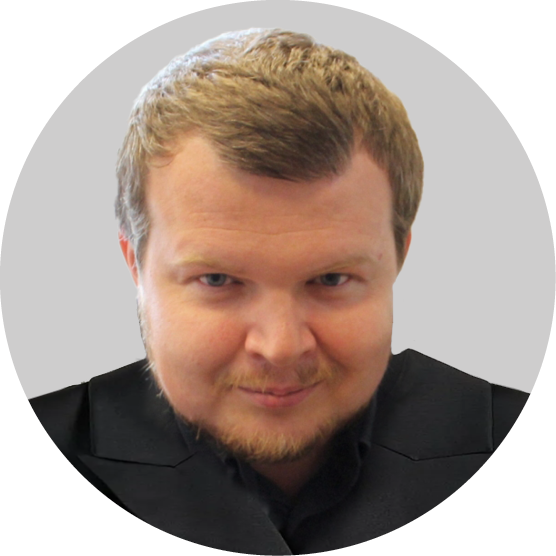 Prof. Grzegorz Lesiuk
Prof. Grzegorz Lesiuk
Faculty of Mechanical Engineering, Department of Mechanics, Materials Engineering and Biomedical discipline: mechanical engineering
hairman of the Polish Group of Fracture Mechanics and member of the Advisory Committee to the T.I.M.E. network. In his scientific activity, he focuses on mechanics, fracture mechanics, fatigue of materials and structures, as well as on new materials and the modelling of their durability under the influence of cyclic and static loads. In this field, he has published over 120 scientific articles in renowned Polish and foreign scientific and technical journals, as well as over 150 conference papers.
He also holds one patent and is the author of four patent applications. His scientific activity has been frequently recognized: he received the Rector's Award of the Wrocław University of Science and Technology four times, he is the winner of the international ESIS award – TC12 (Merit Award), Robert Moskovic Award (ESIS) and two TOP 1% Reviewers awards (Publons&Web of Science), Lierati Award (2019 ) – Emerald Journals Group.
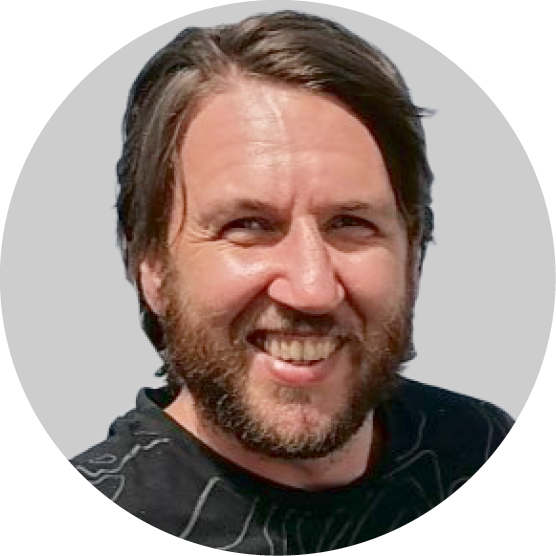 Prof. Michał Baranowski
Prof. Michał Baranowski
Faculty of Fundamental Problems of Technology, Department of Experimental Physics, discipline: physical sciences
Jego praca naukowa skupia się na dwóch grupach półprzewodników: dichalkogenkach metali przejściowych (TMDs) oraz perowskitach (metal-halide perovskites). Swoją uwagę poświęca badaniom fundamentalnym własności optycznych tych materiałów, a w szczególności niezwykle ciekawej fizyce ekscytonu, która w wielu aspektach różni się od tej, którą znamy z innych, bardziej „standardowych” półprzewodników. Laureat politechnicznego konkursu Secundus, konkursów Sonata i Opus 22 + LAP/Weave Narodowego Centrum Nauki oraz stypendium Ministra Nauki i Szkolnictwa Wyższego dla wybitnie zdolnych młodych naukowców.
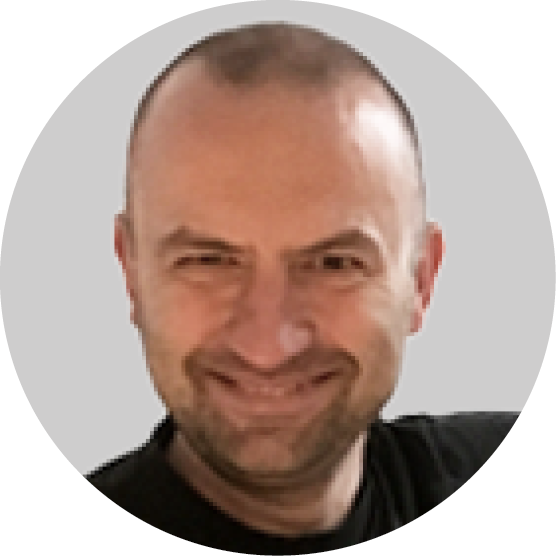 Prof. Cezary Sielużycki
Prof. Cezary Sielużycki
Faculty of Fundamental Problems of Technology, Department of Biomedical Engineering, discipline: biomedical sciences
He is a graduate from the Faculty of Fundamental Problems of Technology at Wrocław University of Science and Technology. He received his doctoral degree (from Warsaw University of Technology) and his habilitation degree (from Silesian University of Technology) in the field of biocybernetics and biomedical engineering.
In his research work, carried out among others at VU Amsterdam (Netherlands), Leibniz Institute for Neurobiology (Magdeburg, Germany), ICM Brain and Spine Institute (UPMC, Sorbonne, Paris, France) and with colleagues from the Faculty of Physics at the University of Warsaw, he focuses on processing biomedical signals, mainly in the field of magnetoencephalographic studies of the activity of the human auditory cortex. He is a laureate of the Polonez 2 competition (NCN, MSCA).
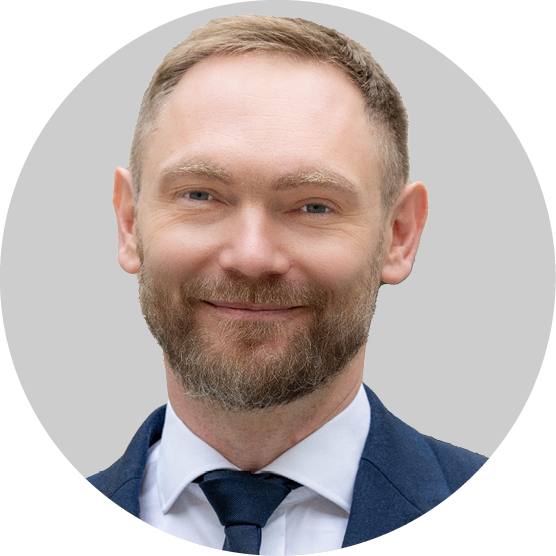 Prof. Marcin Syperek
Prof. Marcin Syperek
Faculty of Fundamental Problems of Technology, Department of Experimental Physics, discipline: physical sciences
His research interests include, among others: quantum optics and the technology of single photon and entangled photon pair sources, light-matter coupling, modern two-dimensional semiconductor materials and light-controlled topological matter. Winner of the Sonata Bis and Opus competitions of the National Science Centre, as well as of the Rector's Research Scholarship 2023 in the category of design and implementation activities.
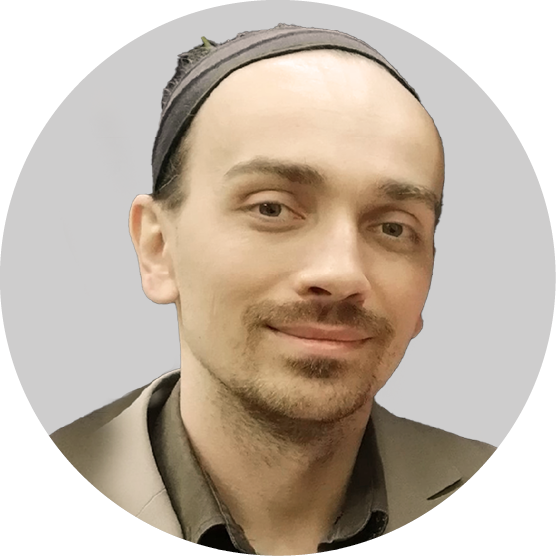 Prof. Michał Mazur
Prof. Michał Mazur
Faculty of Electronics, Photonics and Microsystems, Department of Electronic and Photonic Metrology, discipline: automation, electronics, electrical engineering and space technologies
He researches, among others, thin-film coatings based on metal oxides, which can be used in transparent electronics, sensors or as optical coatings. Winner of the Sonata competition of the National Science Centre, a ministerial scholarship for young scientists who conduct high-quality research and have impressive scientific achievements on an international scale, as well as of the Dionizy Smoleński Rector's Scientific Award.
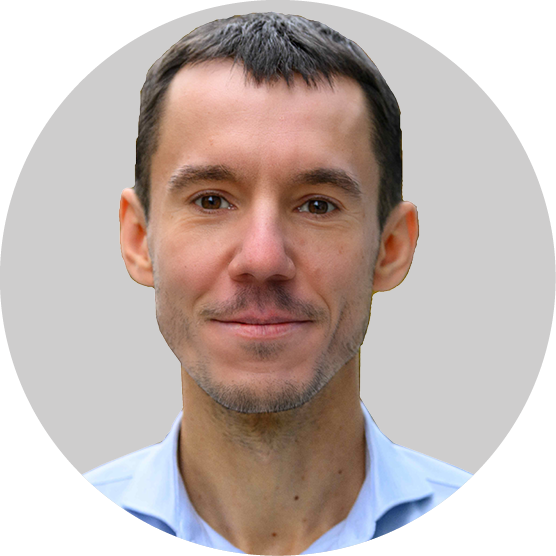 Prof. Grzegorz Soboń
Prof. Grzegorz Soboń
Faculty of Electronics, Photonics and Microsystems, Department of Field Theory, Electronic Circuits and Optoelectronics, discipline: automation, electronics, electrical engineering and space technologies
His research interests focus on ultrafast fibre lasers, nonlinear fibre optics, optical frequency combs and laser spectroscopy. He is the author or co-author of over 90 articles in JCR-indexed journals and of over 150 conference papers.
Winner of many scholarships and awards for young scientists, including: Award of the Minister of Science and Education, Award of the Prime Minister for a doctoral thesis, Scholarship of the Minister of Science and Higher Education, ABB Awards, scholarship under the Start program by the Foundation for Polish Science (twice). He participated in over 20 research projects financed by the National Science Centre, the Minister of Science and Higher Education and the FNP, including four as head of the project.
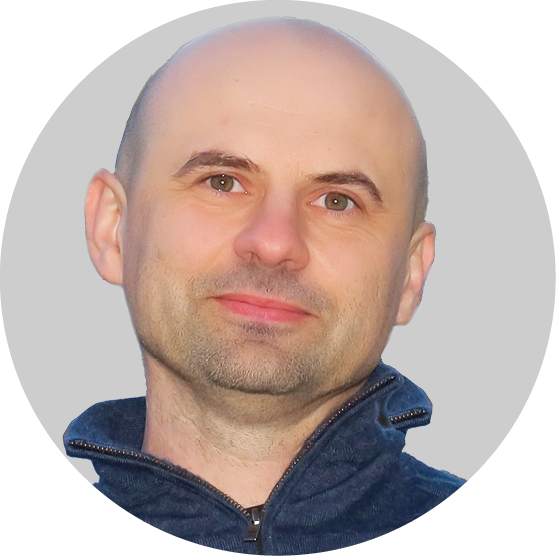 Prof. Tomasz Grzywny
Prof. Tomasz Grzywny
Faculty of Mathematics, Department of Mathematics, discipline: mathematics
is main scientific interests include stochastic processes, differential equations and probability theory. Winner of the Wacław Sierpiński Scientific Award from the Polish Academy of Sciences in the field of mathematics, Award of the Institute of Mathematics of the Polish Academy of Sciences for outstanding scientific achievements in mathematics in 2022, the Rector's Scientific Scholarship 2023 in the category of publishing activity and the Opus competitions of the National Science Centre.
Prof. Adrian Doroszko
Faculty of Medicine, Department of Non-Surgical Clinical Sciences, discipline: medical sciences
Clinician, cardiologist, ultrasonographist. His interests include, among others: development of heart insufficiency after a heart attack, hypertension in young people, resistance to aspirin used in the prevention of heart attack and stroke, as well as assessment of damage to the circulatory system, which is a determinant of survival in children with acute leukaemia.
His research, including into mechanisms of the circulatory system, is in line with current global trends aimed at reducing mortality in people with heart diseases. He has received two scholarships under the Start program of the Foundation for Polish Science, winner of the Medal of L. Hirschfeld for the best graduate of the Medical University of Wrocław, nominated for the Science Award of the Polityka weekly in the life sciences category.
